Juls: I’m trying to make music that lives forever
For years, the lingering question I’ve had for Juls, the famed British-Ghanaian DJ and producer, pertains to the tempo of Afrobeats, especially in relation to his collaborations with Mr Eazi, starting with ‘Skin Tight’. This partnership is widely credited for reshaping the genre as we know it today.
 Juls.
Juls.
It is my opening question a July afternoon last year for the diminutive, introverted man from whom I sit across during break time at Process Ghana, a workshop he started in 2018 to nurture young local talent. The music maker, who joined Grammy oversight body the Recording Academy in 2020, is eating his rice dish from a takeaway box. Occasionally, he coughs or clears his throat due to the spiciness of the sauce, and sips water from a plastic bottle to soothe it. His eyes are shorn of some vitality due to fatigue, and his voice, as soft as his music, betrays a British accent mixed with a touch of pidgin.
I type this sentence about a year later, on the eve of the release of ‘Palm Wine Riddim’, a precursor to Palmwine Diaries Vol 1, his sixth EP (and 12th collection overall), which he describes as his “interpretation of what the sound from Ghana should depict.” His strategy with the project, named after a traditional local brew, involves releasing a sequel annually for the next five years.
“Ghana is the reason for so many important things happening for the culture right now,” he posted on social media announcing the collection. “We have served as a major part of the foundation of modern-day Afrobeats but we haven’t told our story significantly. With regard to our sound, highlife is soul … Our forefathers made great music effortlessly without a plan. It’s time we changed the narrative and made them proud … The sound is unapologetically Ghanaian so my only ask is that my people take it in.”
One cannot discuss Juls, renowned for his work with a tall list of leading Afrobeats stars including Wizkid and Burna Boy, without citing vintage percussive foundations, miraculous guitar licks, horn arrangements, folk and highlife references, and a general roomy feel. During our interview, he affirms my observations about his favoured sonic ingredients, explaining that these elements, rooted in traditional Ghanaian music, have been integral to his work for years. Juls links this choice to his dedication in incorporating his Ghanaian identity into his music, and says he pays homage to this heritage by using highlife elements for his tracks.
“Everything I make reflects Ghana in it if you listen carefully – from drum to percussion patterns. It’s just important that wherever I go, whatever I make and with whoever I make it, my identity is in there.”
Juls, among the notable advocates for the introduction of a dedicated African category at the Grammys, has always believed that highlife is the heart of the Ghanaian sound. He swears by it. “I don’t care what anybody says,” he shoots. He believes that the genre, characterised by its melodic guitar and soulful lyrics, is Ghana’s gift to the world. While it has seen adaptations and fusions over the years, it remains firmly anchored in Ghana’s culture, and Juls underscores the need to preserve its significance.
“That is our sound and we should stick to our sound and build it and evolve, not neglect it. Look at all our fathers. We’re not seeing what many countries drawing from highlife are seeing and they’re taking from us – and we are just sitting there like, ‘Let’s make some trap and get some rappers to rap in Twi over it’.”
But isn’t there something to be said about the uniquely precocious cohort of new artists? “Look,” he says, readjusting in his seat. “If you’re blending the sounds and adding highlife style then that’s fantastic. As long as you’re being unapologetically Ghanaian, I have no problem with that at all.”
Highlife’s seeming resurgence in Ghana, tapped into by newly minted popstars from the West African country, suggests that the younger generation might finally be taking this advice seriously.
“These are the references: Ebo Taylor, Koo Nimo, King Bruce, CK Mann, AB Crentsil, Paapa Yankson, Osibisa, Pat Thomas. These are the references a lot of young producers and artists have to follow. We have to build a community around these sounds so that it becomes a popular thing. I don’t want to come to Ghana and hear amapiano throughout my stay. I can make amapiano in a blink of an eye. I love it, but I’m going to add my twist to it.”
This attitude birthed the Process Ghana mentorship programme in 2018, through which Juls seeks to impart on participants to be unapologetically Ghanaian when it comes to their sound.
“Some of the music made by some of the kids at the Process Ghana workshop have been amazing based on the references I’ve given them, and I know that they’re surprised at some of the stuff they’ve done. If I continue to encourage them to tap into this sound and make more of it and get them in sessions or with artists, I know we will take it to the next level. It’s a different conversation altogether. And if we get the media and radio behind it, there’s a story to tell because that’s what they really want to do – to tell a story in a very positive way.”
Juls believes that young artists, such as those he is mentoring at Process Ghana, have the opportunity to build on the foundation laid by the legends and take Ghana’s sound to new heights. The goal here is to create a sound that people associate with Ghana, he says.
“It’s vital that when someone visits Ghana, they hear a distinct sound regularly. When you go to Jamaica, you don’t hear drill, you hear reggae and dancehall. That’s their sound. When you’re in Jamaica, that’s what you enjoy, with just a sprinkle of Afrobeats here and there. It’s important that when people come to our country, they know what kind of music they’ll hear. We all need to celebrate this and not disregard it as a community.”
I suggest that Juls’ music has become somewhat synonymous with the modern Ghanaian pop sound, much like the recognition hiplife veteran Hammer received in the past. He agrees with this to some extent: “I mean… I definitely have a sound, I think the only difference is that I haven’t collaborated with enough Ghanaian people.”
His theory is that some Ghanaian artists may not fully appreciate his approach to music. He thinks they might either dislike it or prefer a more spontaneous approach to music creation. In contrast, he wants his music to have a clear purpose and a plan beyond just creating a vibe in the studio. He admires the Nigerian industry’s MO of planning, documenting and providing support for music releases, which he feels lacks in some Ghanaian music circles.
Before we move on, Juls has more to say about Hammer’s pioneering style, an impactful blend of highlife and hip hop that catapulted rappers like Kwaw Kese, Tinny, Edem and Obrafour to the mainstream. “If you listen to the music as well, you can tell the updated sound we had, but you can tell it was still very Ghanaian and traditional.”
Juls began his musical journey by fusiing soul, highlife and hip hop beats. Then, in 2014, following a conversation with veteran Ghanaian producer Panji Anoff, Juls embraced the idea of creating a new sound and finding an artist who could complement it. “You need to create a sound, and when you create that sound,” Arnorf suggested, “you need to find someone that is going to compliment that sound.”
Juls took this advice to heart and turned to the internet. The search led him to Mr Eazi through KluMonsta, a producer he had in turn encountered through JaySo. Juls reached out to Mr Eazi, requesting the vocal track for ‘Bankulize’. He had listened to Mr Eazi’s mixtape and was particularly drawn to that track. Juls noticed potential in the song and had a bold idea – to create a remix that would infuse his unique sound into it. Although initially hesitant, Mr Eazi eventually sent Juls the track. Armed with it, Juls set out on a new experiment. The result was a slow, lean groove evocative of dancehall but combined with unmistakably African elements. Juls’ musical alchemy had given birth to something extraordinary.
“It was a very slow minimalistic beat reminiscent of dancehall in terms of the groove,” Juls tells me. “But the percussion that I did in there still made it very African. People had no idea what It was, it just made sense because it felt sexy.”
The remix of ‘Bankulize’ proved to be a sensation, in ways that no one had anticipated. The addition of Pappy Kojo, one of Ghana’s hottest rappers at the time, added a layer of charisma and energy that was simply irresistible. This was just the beginning. Juls and Mr Eazi continued their collaboration, and the result was ‘Skin Tight’, another chart-topping hit. The record, which combines elements of highlife, hip-hop and dancehall with African rhythms, struck a chord with audiences everywhere. The impact of ‘Skin Tight’ signalled the arrival of a new sound, one that defied conventional categorisation. Juls and Mr Eazi had inadvertently created a blueprint for a genre that was both distinctly African and global in appeal. Other hits like ‘Hol Up’, ‘Anointing’ and ‘Shitor’ in 2016 cemented their mainstream influence, up to a point where many of their colleagues clutched frantically to the style.
Juls had unwittingly become a trendsetter and influencer in the music industry. He was not merely creating music, he was shaping the future of African sound. “I feel like without intentionally doing it, I have put on new artists,” he said.
After the interview, I run through some of his collaborations. He has a point. ‘Angelina’ is how Oxlade was noticed. ‘Give You Love’ is how L.A.X’s rebirth began.
When other producers linked up with Mr Eazi, they sought to recreate this new sound. Take the E-Kelly-produced ‘Leg Over’ for instance, which summons the Juls spirit meticulously. But these efforts frustrated Juls at first because it felt like others were simply replicating his style. Now, he views this differently – as proof of his influence, especially if done respectfully. “There are prominent producers I introduced to the idea and they are inspired by much of the music I created. I’ve always been a trendsetter, and as long as I’m contributing to music, that’s what matters,” Juls says.
Like most pacemakers, Juls was oblivious to the fact that he was the instigator of a culture-defining moment. “I never had a purpose until recently. I was just trying to create music – feel-good music. The music I was making was not for the radio or for the clubs. It was for music heads. I felt like I wanted a little bit more of that attention.”
I ask if he was aware of the prevailing sound and how he adjusted to it – or whether he adjusted at all. He explains that he has generally avoided conforming to trends, stressing his belief in the need for music to progress rather than simply following the crowd. So, no, he didn’t foresee the extent of his eventual success. How could he? The prevalent tempo was around 120 beats per minute. Afro-house. Many Afrobeats acts were pursuing collaborations with South Africans like Uhuru and Mafikizolo.
During our chat, Juls reveals that he is exploring a new, faster sound. While the slow groove will always have a place in his heart, he says he is eager to create music that gets the party going. “What I’m trying to make right now is a completely different sound, a bit more uptempo though.”
I ask why he wants to change his sound at the height of Afrobeats, in which he has a very strong hand. “It’s in my head,” Juls says. “I haven’t actively worked on it yet but I know it’ll be a lot faster. For the dance floor, but I want it to be different. Right now, I get booked for a lot of shows. People want to hear what I’ve made. They want to hear my records, but my records are very slow. I want to get the party going. That’s what I want to tap into. As a producer, DJ and artist, I definitely do want a different soundscape for myself. That’s what I’m trying to establish. It’s the end of an era in terms of the [slower] type of sound. I’ll still do it here and there. I’ve got a couple of records pending that will have that vibe, but now, I’m just trying to come up with energy, vibe and dance.”
‘Palmwine Riddim’ reflects Juls’ trademark laid-back groove. Maybe he will venture into uptempo stuff soon – maybe even on the new EP. For now, he continues to follow his proven formula, which prioritises music that marinates as classics over the hype of party tracks.
“I’m not just trying to make hits. I’m trying to make music that lives forever,” Juls says.














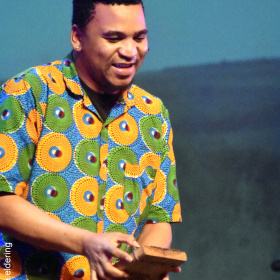


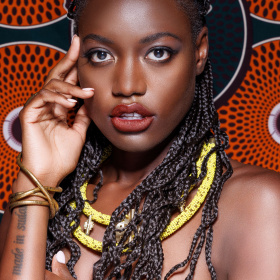
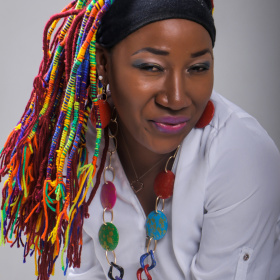
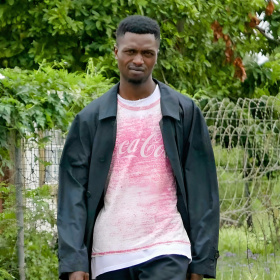
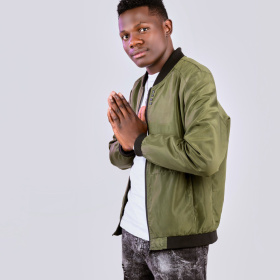
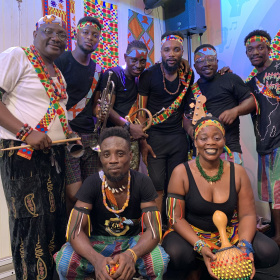
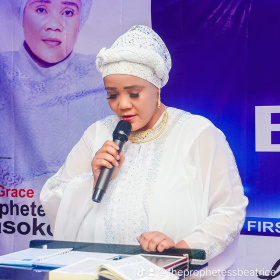


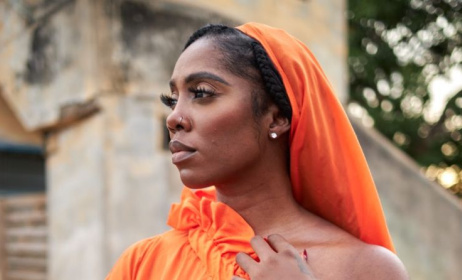
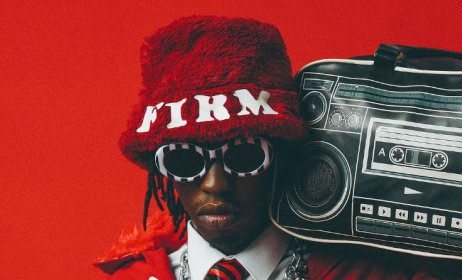

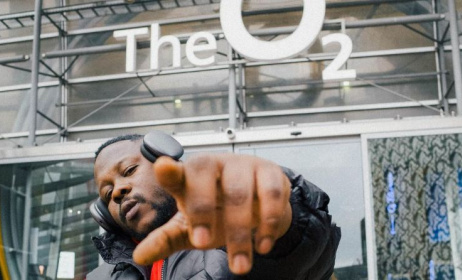

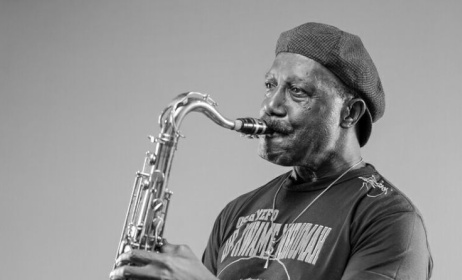


Comments
Log in or register to post comments